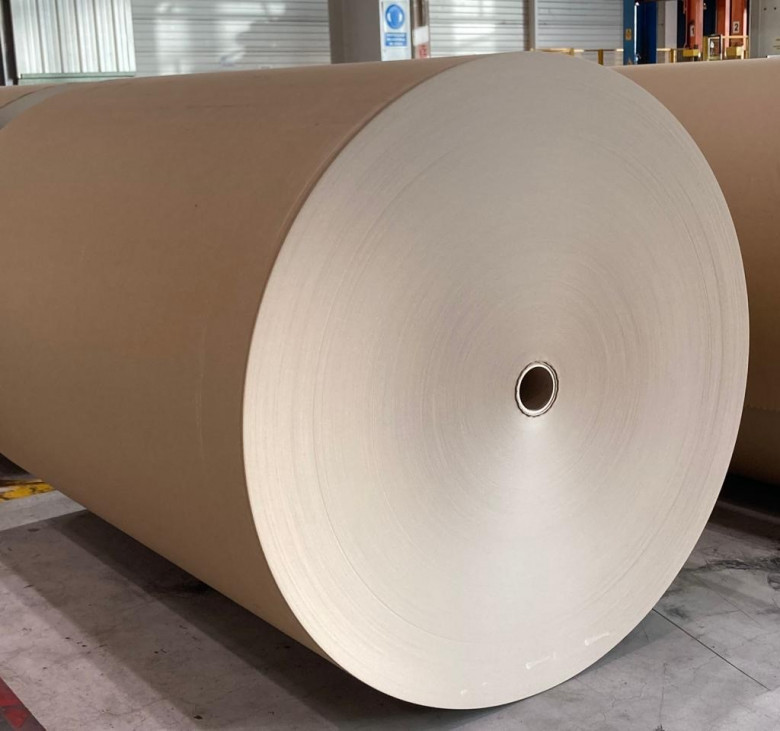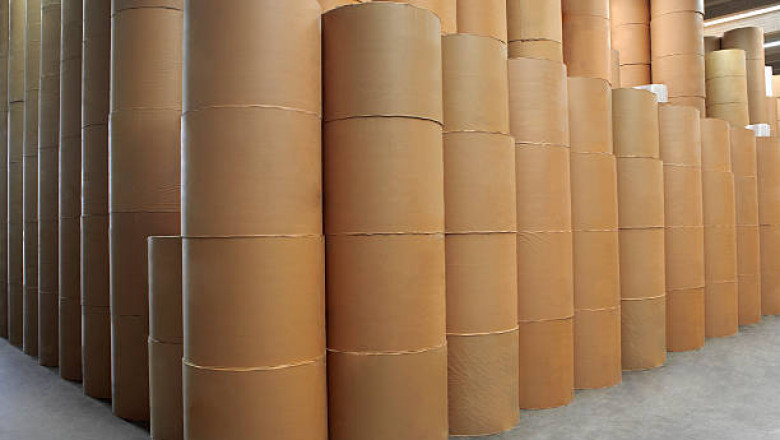views

Introduction
The global India Containerboard Market is undergoing a significant transformation, with sustainability becoming a key priority. India, as one of the fastest-growing packaging markets, is witnessing an increasing shift towards eco-friendly solutions, particularly in the containerboard sector. The rising demand for sustainable packaging, coupled with regulatory support and evolving consumer preferences, has paved the way for the rapid adoption of recycled containerboard. This article explores the role of recycled containerboard in India's packaging industry and its contribution to fostering a circular economy.
Understanding Recycled Containerboard
Recycled containerboard is made from recovered fiber, primarily sourced from old corrugated containers (OCC) and mixed paper waste. Unlike virgin containerboard, which relies on fresh wood pulp, recycled containerboard minimizes the consumption of natural resources and significantly reduces environmental impact. With advancements in recycling technologies, modern recycled containerboard can achieve high strength and durability, making it a viable alternative to virgin fiber-based packaging.
The Growing Demand for Recycled Containerboard in India
Several factors are driving the adoption of recycled containerboard in India:
1. Booming E-commerce and FMCG Sectors
The rapid growth of e-commerce and the fast-moving consumer goods (FMCG) industry has increased the demand for corrugated packaging. Online retail giants like Amazon, Flipkart, and Myntra, along with FMCG brands, are seeking sustainable packaging solutions to align with their corporate social responsibility (CSR) goals. Recycled containerboard offers a cost-effective and eco-friendly solution that meets industry requirements while reducing carbon footprints.
2. Stringent Environmental Regulations
The Indian government has introduced several policies to promote sustainability in the packaging sector. Regulations such as the Plastic Waste Management Rules and the Extended Producer Responsibility (EPR) framework encourage businesses to adopt recyclable and biodegradable packaging solutions. This has led to a surge in demand for recycled containerboard as companies seek compliance with eco-friendly packaging norms.
3. Consumer Awareness and Sustainability Trends
Indian consumers are becoming more conscious of environmental issues, leading to increased demand for sustainable products. Brands are responding by incorporating recycled and biodegradable materials in their packaging strategies. As a result, recycled containerboard has gained traction among businesses looking to enhance their sustainability credentials.
4. Cost-Effectiveness and Resource Efficiency
Recycled containerboard is a cost-effective alternative to virgin fiber-based packaging. It reduces dependency on wood pulp, lowers production costs, and optimizes resource efficiency. Given India's price-sensitive market, businesses are increasingly shifting towards recycled packaging to balance affordability and sustainability.
The Role of Recycled Containerboard in India’s Circular Economy
A circular economy emphasizes resource efficiency, waste reduction, and material recycling to create a sustainable production cycle. Recycled containerboard plays a crucial role in advancing India's circular economy goals by:
1. Reducing Deforestation and Conserving Natural Resources
By utilizing recovered fiber instead of virgin wood pulp, recycled containerboard helps mitigate deforestation, preserving India's forest ecosystems. This aligns with the country’s commitment to sustainable development and environmental conservation.
2. Minimizing Landfill Waste
India generates millions of tons of paper and packaging waste annually. Recycling and repurposing containerboard significantly reduce landfill accumulation, lowering greenhouse gas emissions and promoting a cleaner environment.
3. Enhancing Recycling Infrastructure
The rising demand for recycled containerboard is driving investments in waste collection, sorting, and recycling infrastructure. Improved recycling systems create employment opportunities, stimulate economic growth, and enhance India's waste management capabilities.
4. Encouraging Corporate Sustainability Initiatives
Major Indian corporations are integrating sustainability into their business models by adopting recycled packaging solutions. Companies such as ITC, WestRock India, and JK Paper are investing in recycled paperboard production, reinforcing their commitment to eco-friendly packaging.
Challenges in the Adoption of Recycled Containerboard
Despite its advantages, the widespread adoption of recycled containerboard in India faces several challenges:
1. Quality and Performance Concerns
While recycling technologies have improved, some businesses still perceive recycled containerboard as inferior to virgin fiber-based packaging in terms of strength and durability. Educating stakeholders and advancing manufacturing processes can help address these concerns.
2. Limited Waste Collection and Segregation Infrastructure
Effective recycling requires an organized waste collection and segregation system. In India, informal waste management practices dominate, making it difficult to achieve high-quality fiber recovery for containerboard production.
3. Fluctuating Raw Material Prices
The availability and cost of recovered fiber fluctuate due to varying collection rates and global demand. Businesses must develop efficient supply chain strategies to manage price volatility.
4. Need for Greater Awareness and Policy Support
While sustainability is gaining traction, more awareness is needed among small and medium enterprises (SMEs) about the benefits of recycled containerboard. Additionally, stronger policy incentives and financial support from the government can accelerate adoption.
Future Outlook and Opportunities
The future of recycled containerboard in India looks promising, with several emerging opportunities:
1. Expansion of Recycling Facilities
Investments in modern recycling plants and advanced pulping technologies can enhance the quality and availability of recycled containerboard, meeting the growing demand for sustainable packaging.
2. Collaboration Between Industries and Waste Collectors
Strengthening partnerships between packaging manufacturers, waste collectors, and recyclers can create a robust supply chain for recovered fiber, ensuring a steady flow of raw materials.
3. Government Incentives and Green Packaging Policies
Policies that promote green packaging, such as tax benefits for using recycled materials, can incentivize businesses to adopt recycled containerboard solutions.
4. Innovations in Sustainable Packaging
Ongoing R&D in biodegradable coatings, water-resistant recycled paper, and lightweight packaging solutions will further drive the adoption of recycled containerboard in diverse industries.
Conclusion
India's transition towards a circular economy is gaining momentum, and recycled containerboard is at the forefront of this sustainable shift. With increasing demand from e-commerce, FMCG, and other sectors, along with supportive regulations and evolving consumer preferences, the recycled containerboard market is set for substantial growth. By addressing challenges, improving recycling infrastructure, and fostering industry collaborations, India can strengthen its position as a leader in sustainable packaging and drive long-term environmental and economic benefits.






















Comments
0 comment